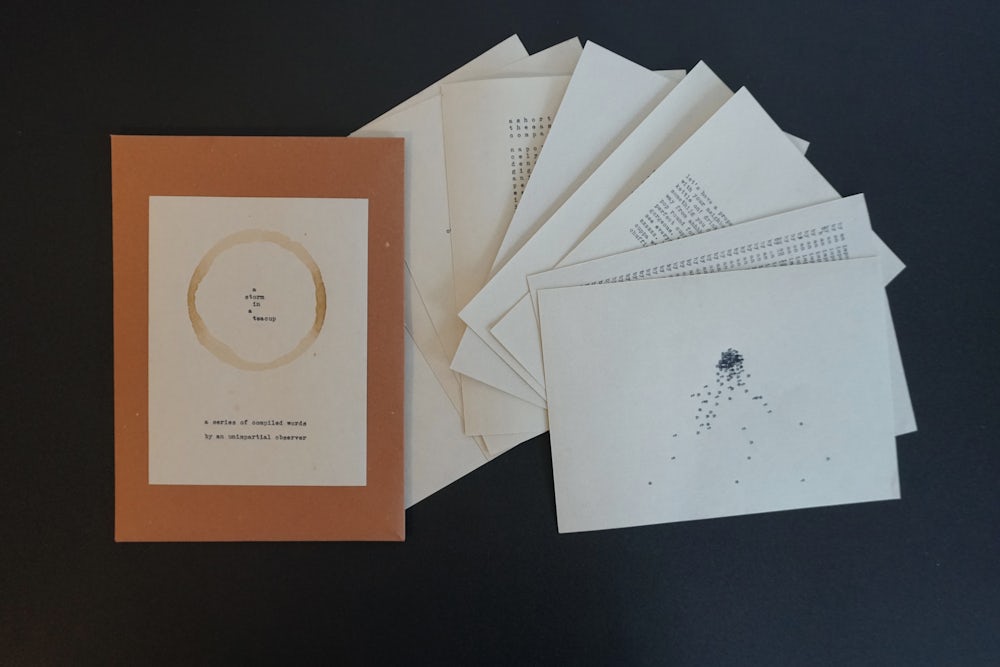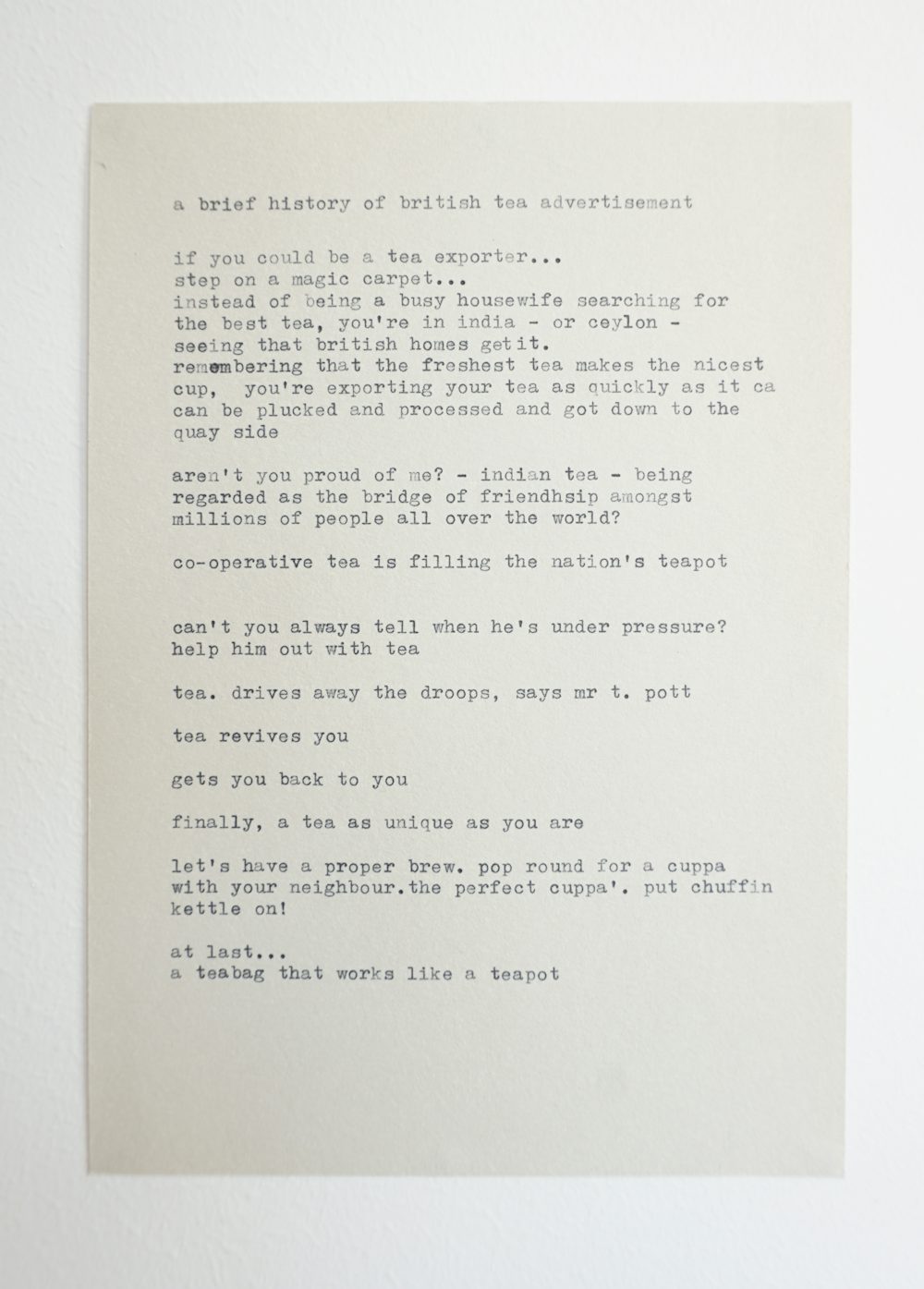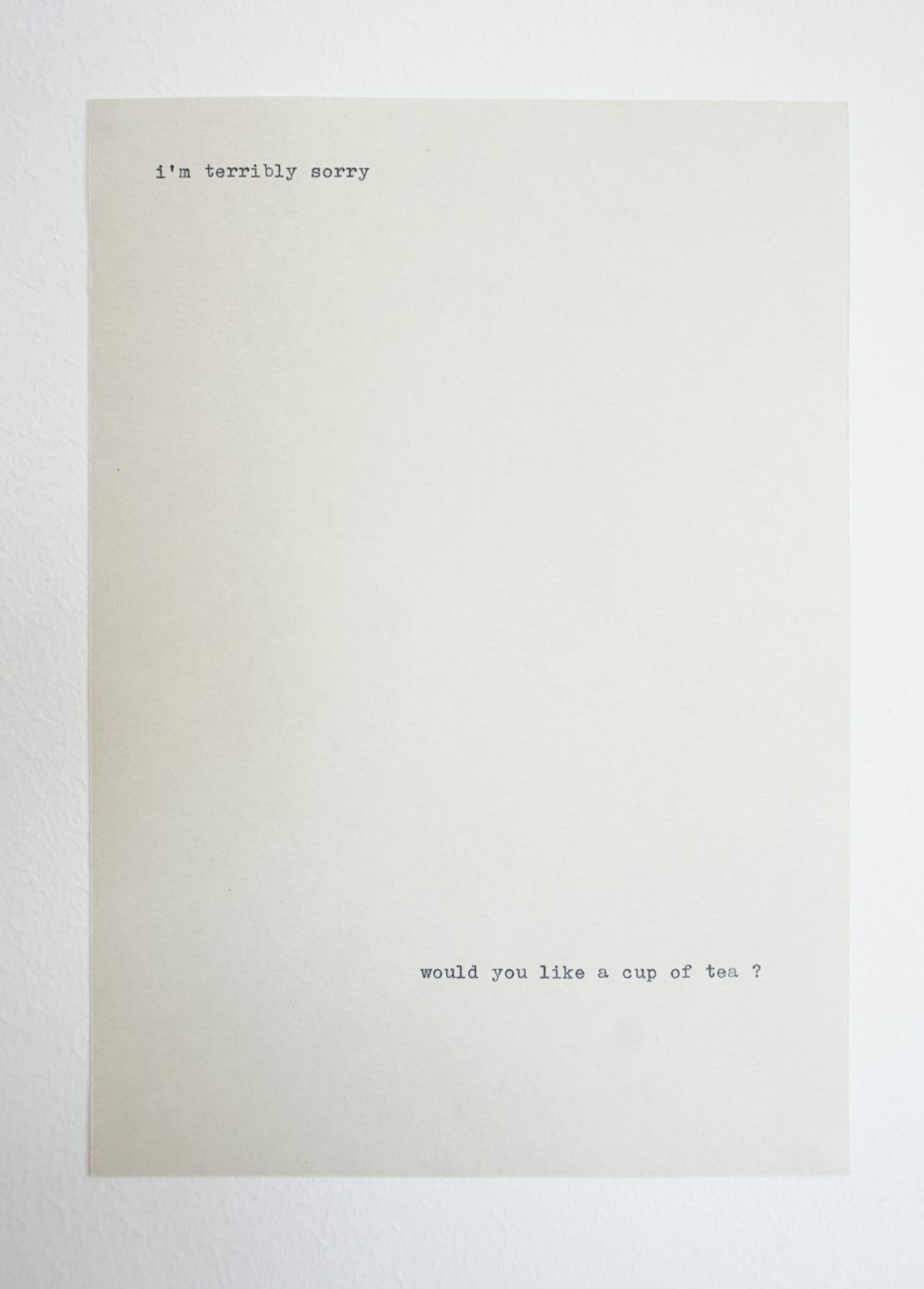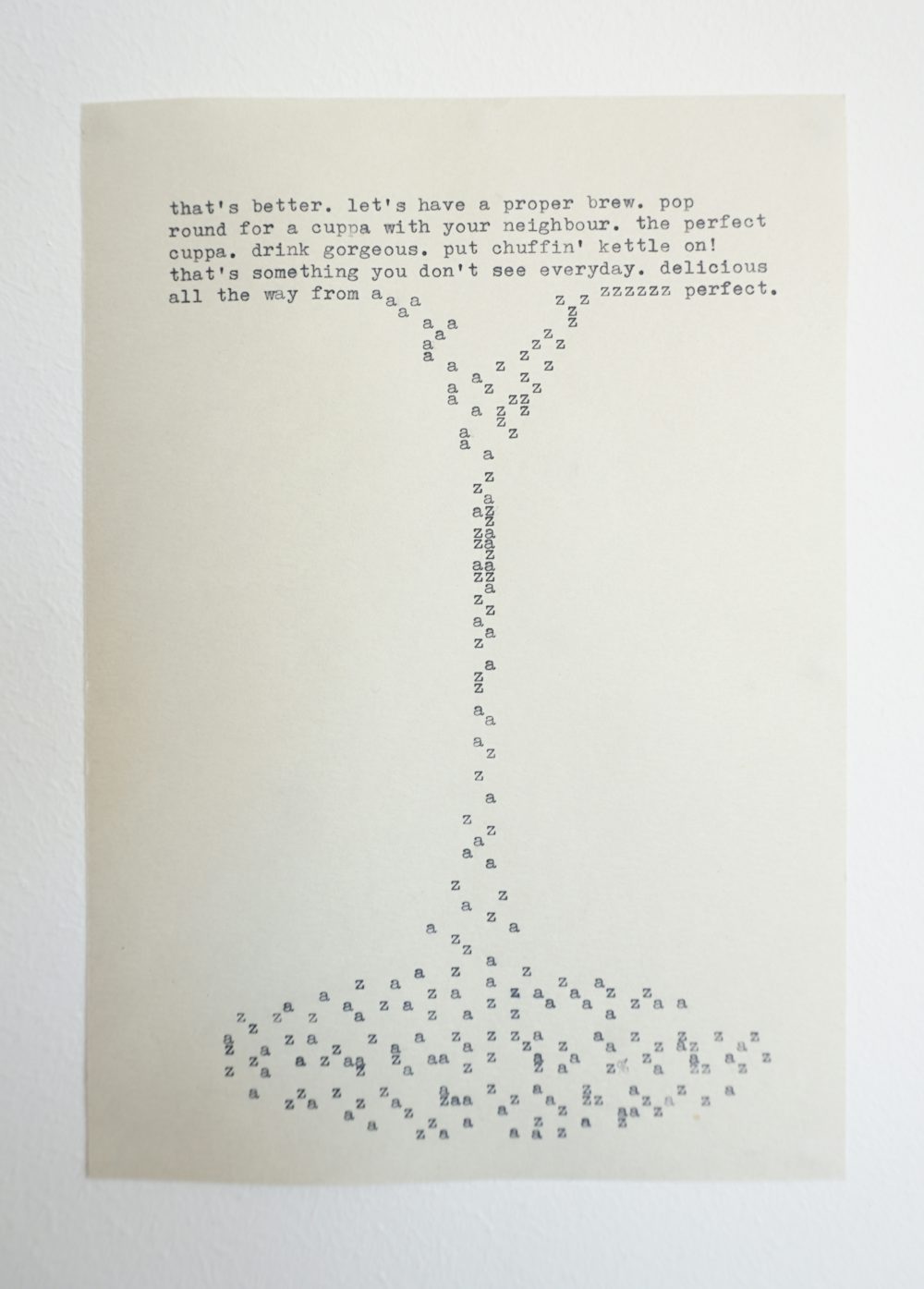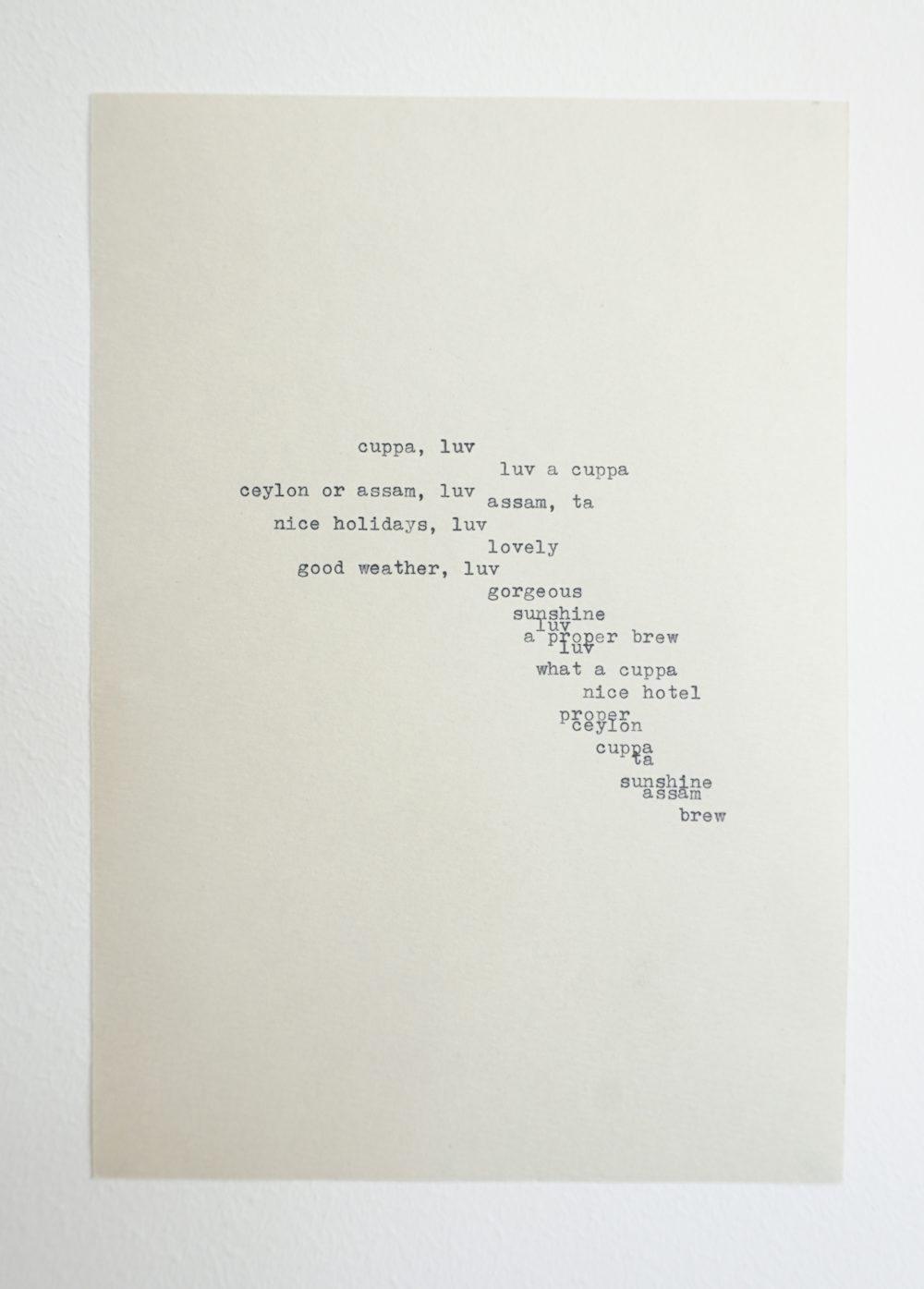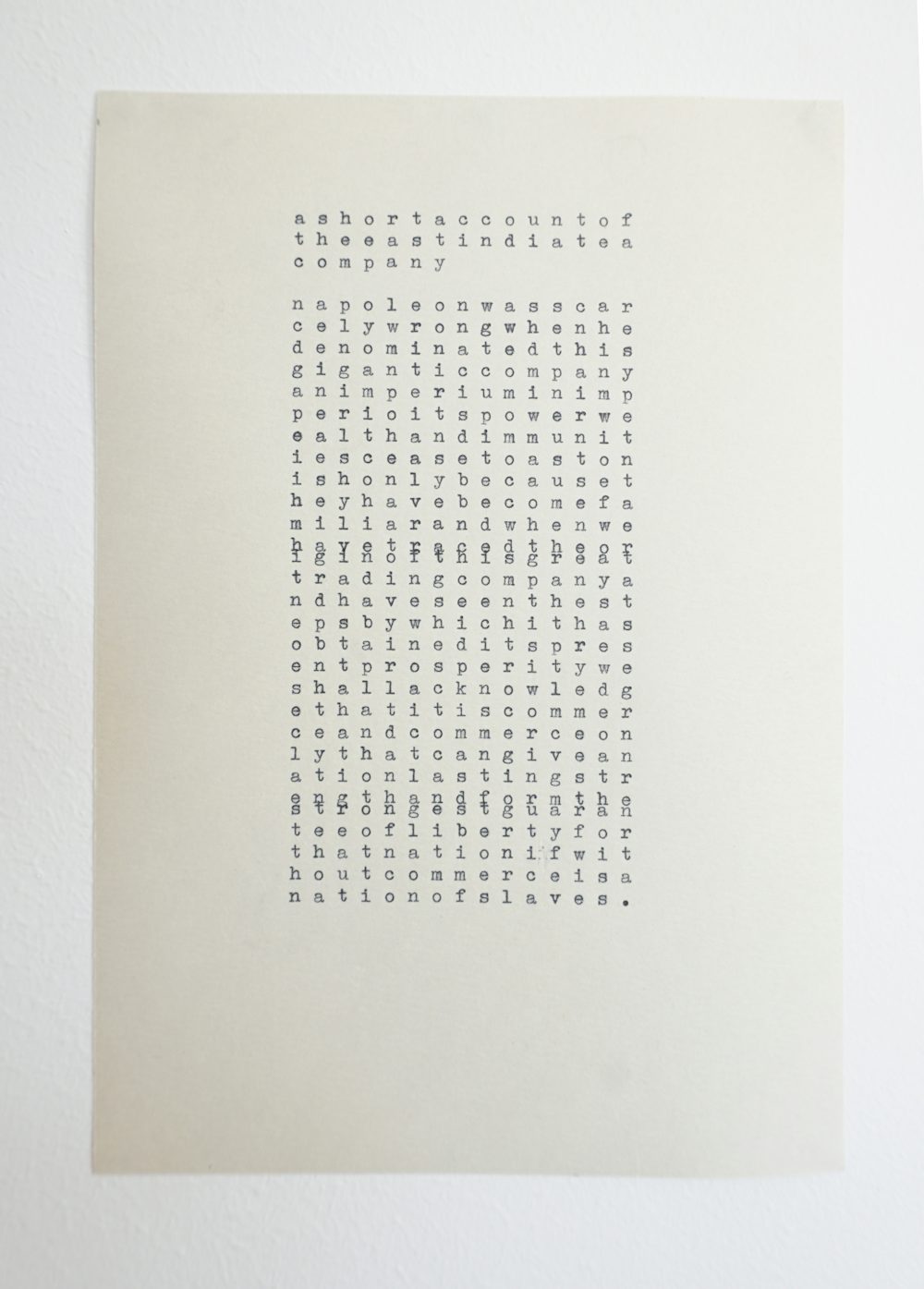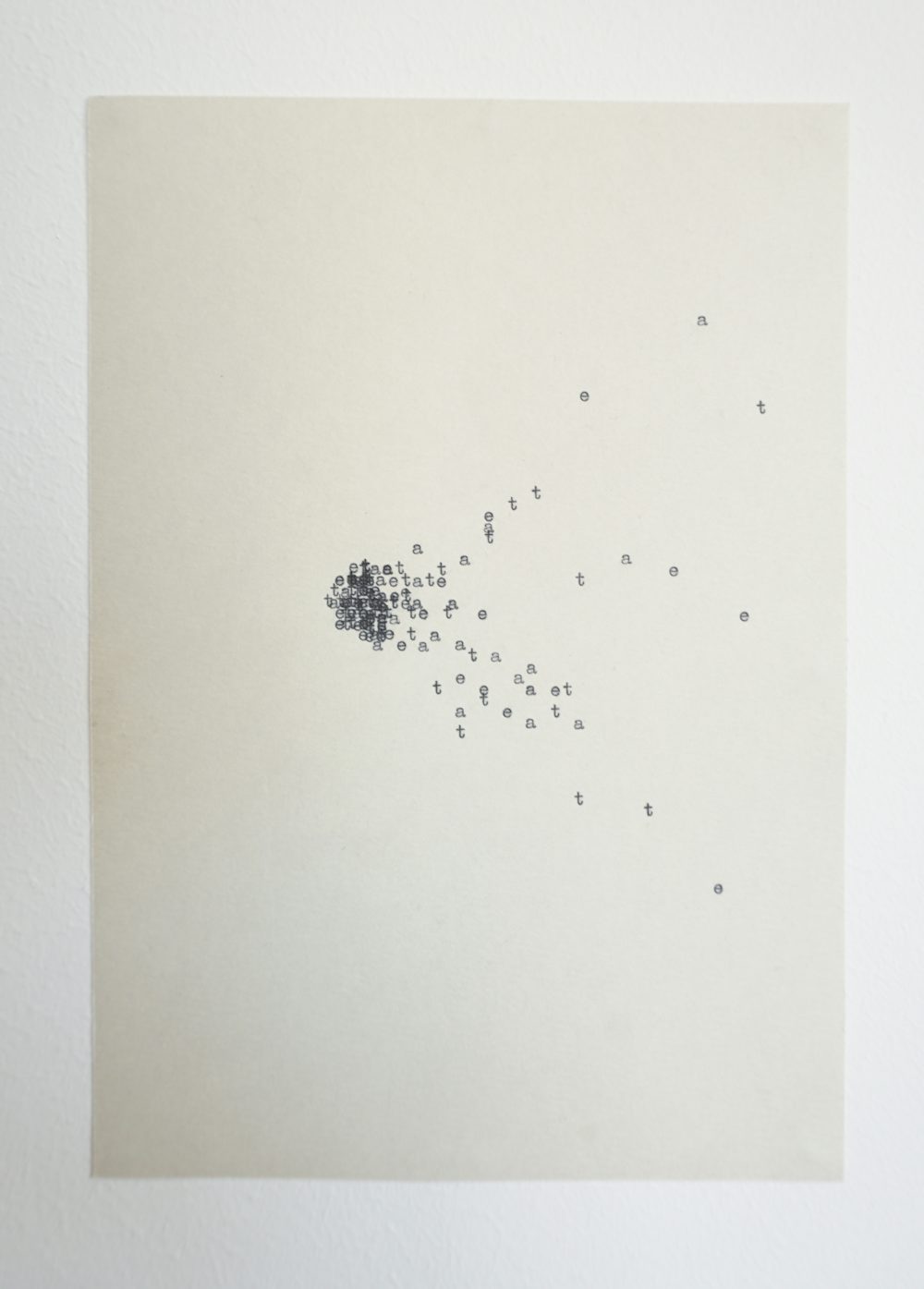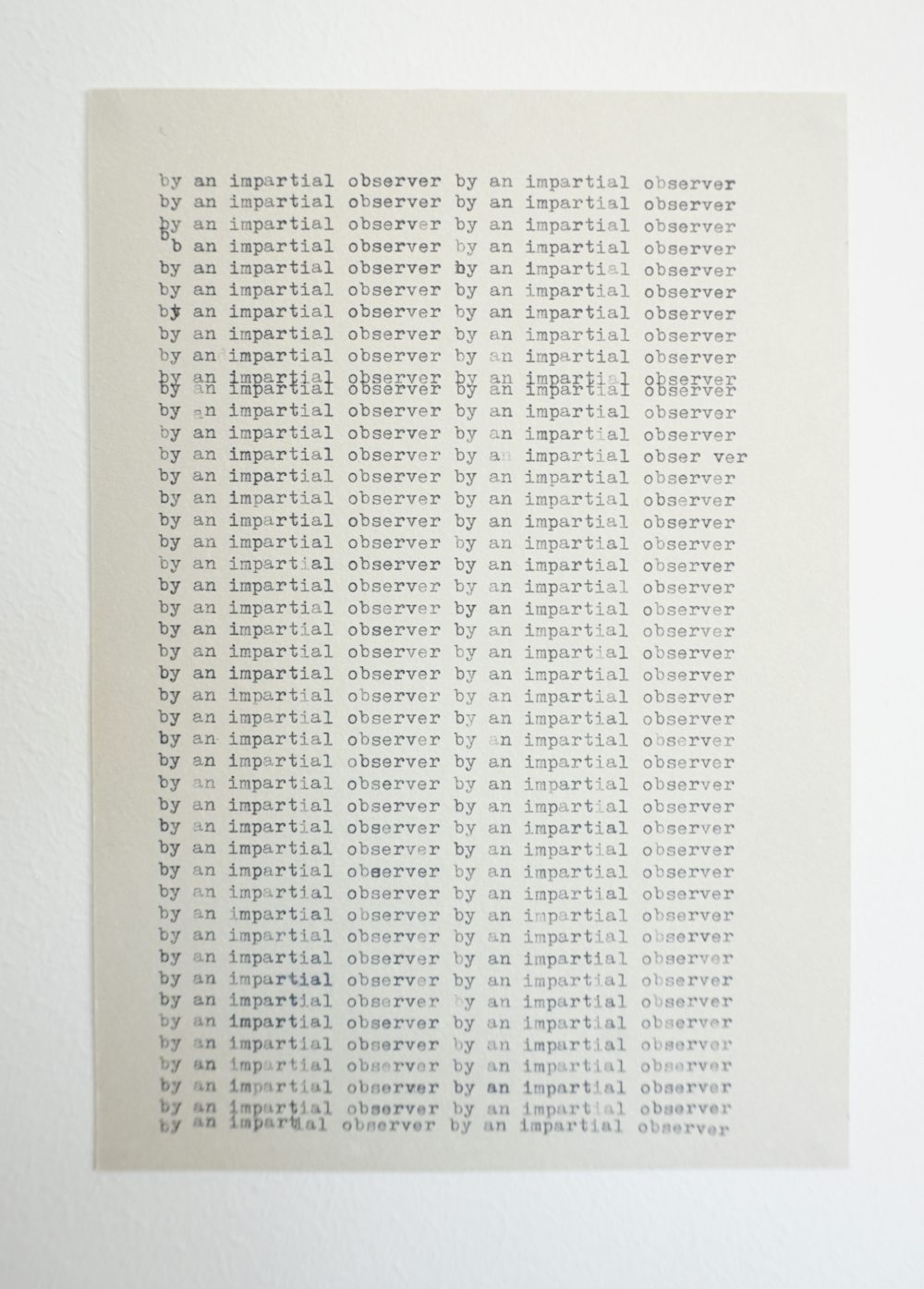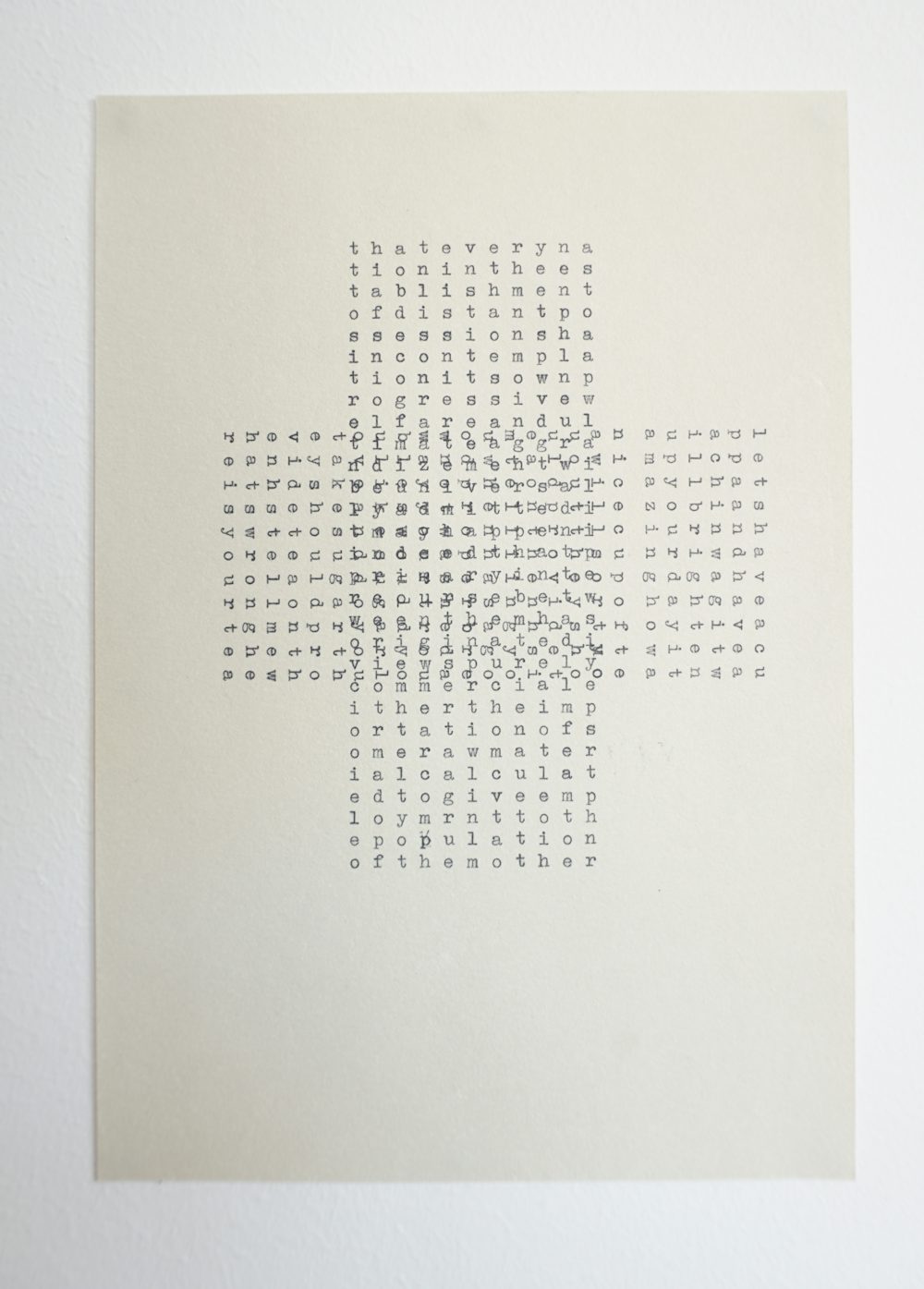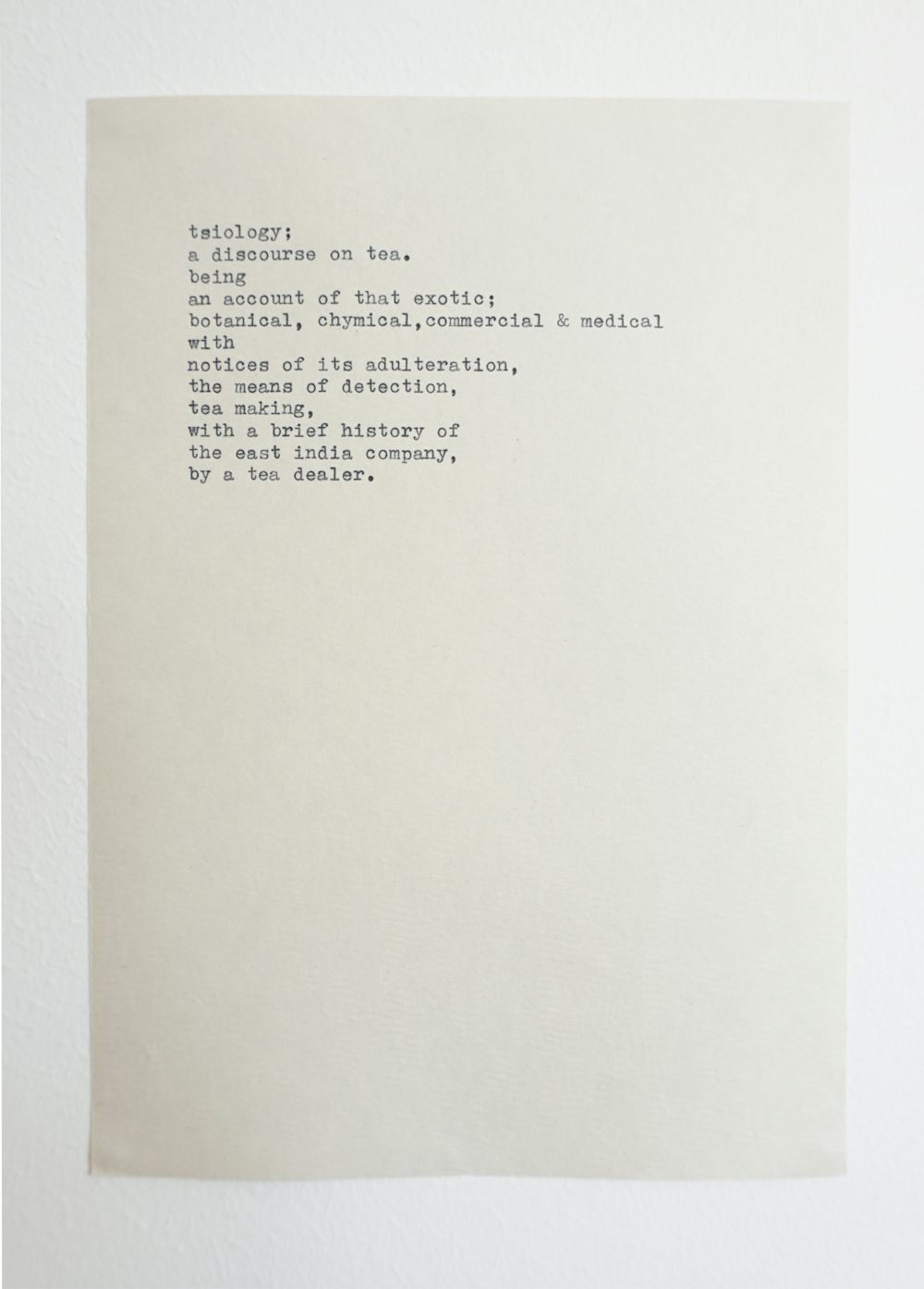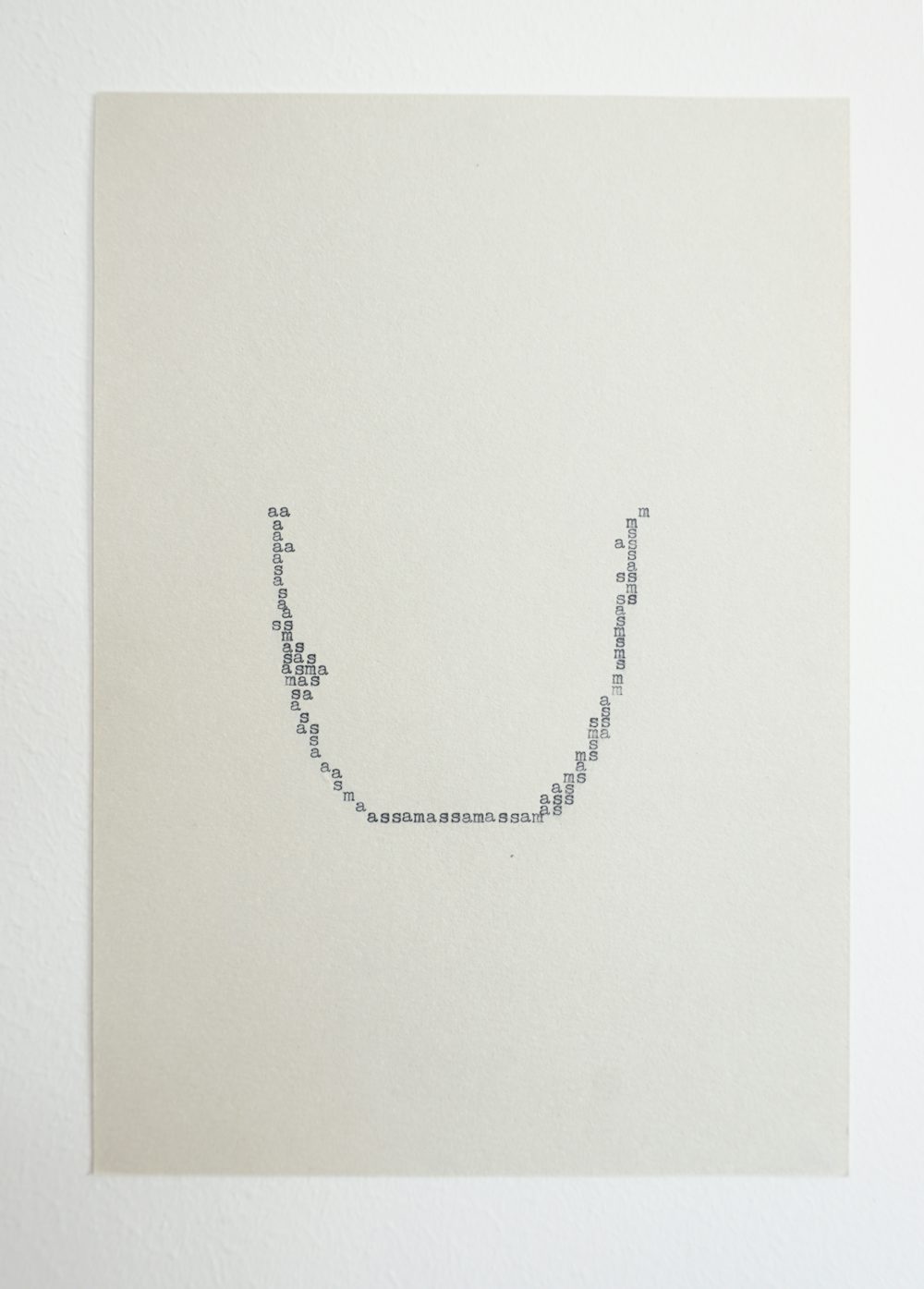A Storm in a Teacup scrutinises Britishness and its use of language as an imperial tool. Through the lens of the cultural phenomenon of British tea drinking, the project interrogates forms of language that inform nationhood and contain deep structures that usually remain hidden from consciousness.
The cup of English tea is considered a universal panacea by many British people, a social lubricant and seemingly benign entity. Its history and origins however, involve the violent extraction of human knowledge, labour and natural resources from across the globe.
Through the compilation and recompilation of colonial tea related documents and British tea advertisement, sourced from the British Library archives, the project results in a publication that reveals the interconnectedness of these two forms of written media. Produced on a manual typewriter, the initial texts which are conventional and linear in narrative, are disrupted to create a sense of defamiliarisation in the style of concrete poetry. Through techniques such as repetition, distortion and drawing out connections, the texts expose tactics such as the possessive act of naming and politeness as a guise to hide violence. The use of the typewriter enables the manipulation of language as material - where words, letters and sentences are physical artefacts that hold meaning and power.
The publication aims to perform a disruption of language through concrete poetry and also to provoke as an object in itself. Intended for audiences who uphold systems of knowledge that perpetuate colonial attitudes, knowingly or unknowingly, it is intended to be utilised in the everyday social arena of the cafe. The goal is for 50 copies to be reproduced and dispersed in cafes throughout London. Here, time can be spent with the object, as both tea and words are sipped. Tea spillages are welcomed.
A Storm in a Teacup purposefully connects historical and contemporary media to expose language as an inherited and ingested system of knowledge, in which the author’s complicity in its use must also be challenged and considered highly subjective.
